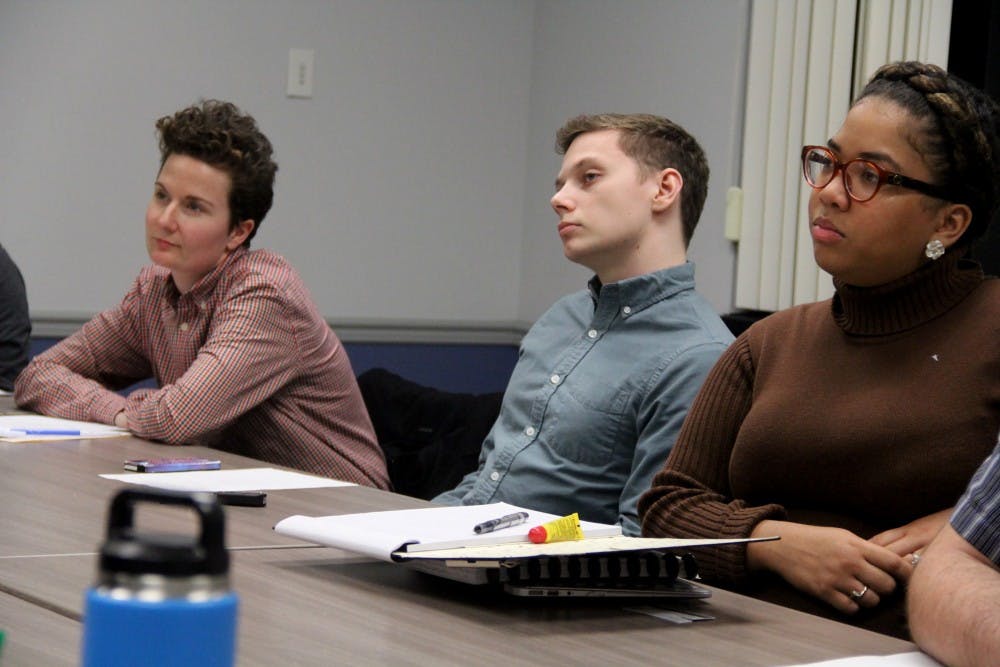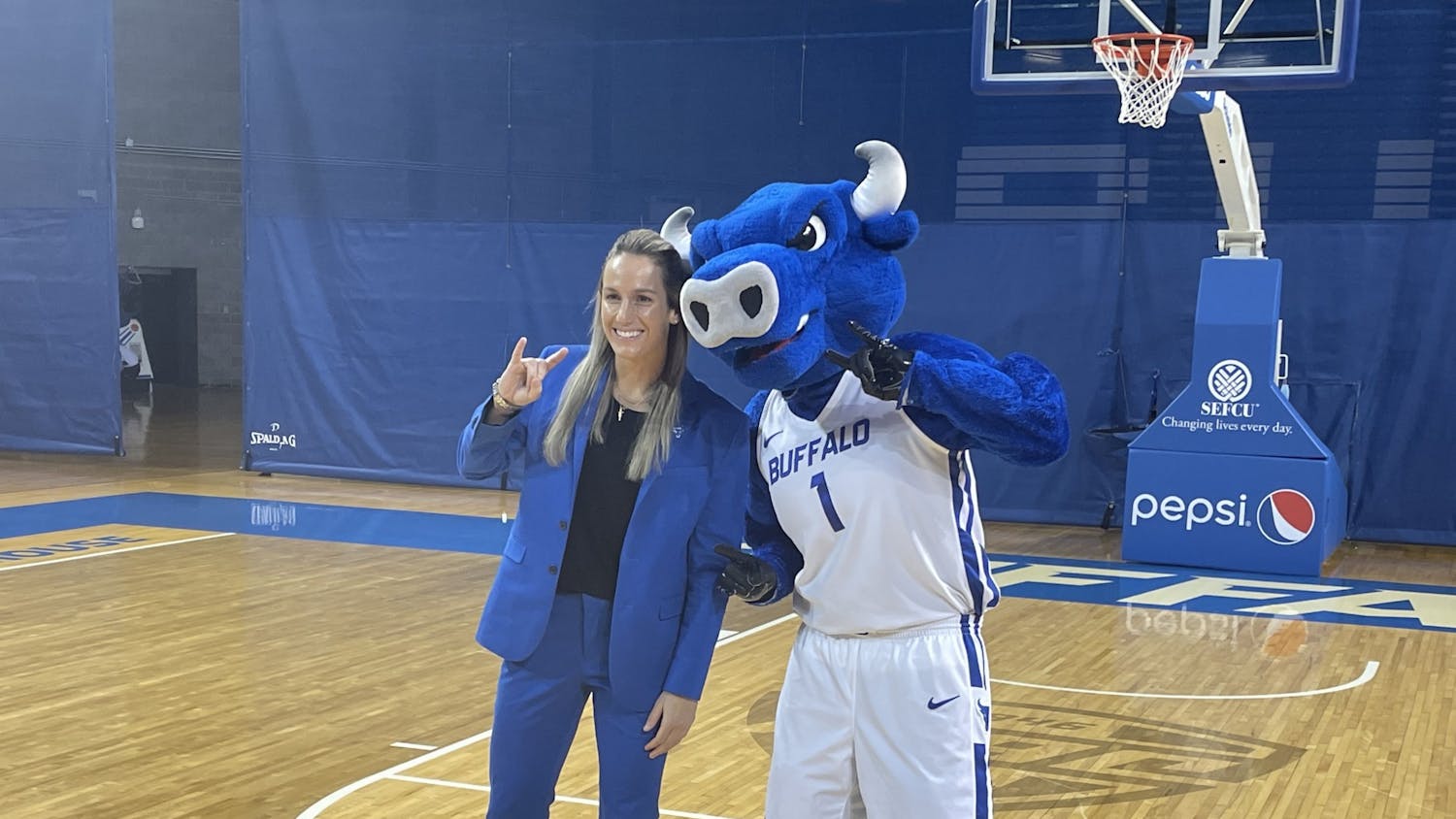Members of the Council of Advocacy and Leadership met Wednesday night to discuss student concerns such as rising student fees and the enforcement of UB's smoking policy. COAL is made up of the seven student government presidents, the Student-Wide Judiciary Chief Justice Joe Wolf and chaired by assembly speaker and UB Council student representative Mike Brown.
Brown, a junior computer science and political science major, led the discussion; occasionally handing the floor to fellow members SA President Leslie Veloz, Wolf, Graduate Student Association President Tanja Aho, president of the School of Pharmacy SA Lucas Grenolds, president of Medical Student Polity Derek Spath and president of Pan-Hellenic Council and Greek-life representative Brielle Anderson.
Last week’s broad-based fee meeting was among the meeting’s issues.
Veloz, a senior psychology and English major, expressed her concern over the lack of adequate services available for regular students, while they pay the athletics fee to provide teams with tutoring services. Veloz said it was unclear as to how the final decision on the fees is made, how student feedback is interpreted and how these fees will be ultimately used.
“For undergrads, the recreation fee and the health fee are the things we see the most direct benefit to,” Veloz said. “With students that were there advocating, they expressed their discontent in the athletics fee. Not only do we pay for everything relating to athletics, but also we pay for tutors for their teams when our general tutoring services cannot accommodate our student body.”
Veloz said she will follow up with the student affairs department and Vice President of Student Life A. Scott Weber for further discussion of the fees.
Philip Glick, chair of UB Faculty Senate, asked members of COAL to consider endorsing the Breathe Free UB report. The new policy, as well as a report that recommends Smoke Free UB policy revisions, has the intent of making UB “a truly smoke-free, vape-free and tobacco-free campus,” Glick said.
The policy recommends $50 fines or one to two hours of community service for violations within designated 100-feet buffer zones surrounding campus buildings. The report also calls for academic holds to block class registration and graduation until students pay the fine.
“Every day, especially at the childhood development center, there are kids in jeopardy of being exposed to not only smoke, but to cigarette butts that are blown down,” Glick said. “They suck on them and can get nicotine poisoning.”
Glick said he is working with Erie County Legislator Patrick Burke to propose the sponsorship of an ordinance that would enforce UB campuses as non-smoking zones. President Satish Tripathi publicly said he is not willing to enforce the non-smoking policy without a law.
Aho expressed concern that the policy would lead to potential “over-policing” on-campus.
“If [university police] will be tasked to do the enforcement, we’re going to have even more officers interacting with students –– interactions that often don’t help; they provoke, and they certainly don’t teach anybody anything,” Aho said.
Aho said she would be more supportive of a volunteer force.
The members voted to table the proposal due to it being partially incomplete.
Other issues discussed during the meeting included the concern of Amherst Police breaking into Greek life social gatherings without a probable cause.
Anderson said the use of force and over-policing of Greek social gatherings near South Campus can sometimes be scary, and that the Pan-Hellenic Council is seeking for ways to find a medium of communication between undergraduates and police.
“We almost feel like we don’t have a voice sometimes, which can be very frustrating as students,” Anderson said. “[Amherst Police] seem to do more about college parties than crime down there.”
The Pan-Hellenic Council is seeking solutions for the lack of Greek housing on campus and over policing. Proposed ideas included finding a safer community for Greek life housing and potentially moving Greek life from South Campus to inhibit North Campus.
Anna Savchenko is an assisstant news editor and can be reached at anna.savchencko@ubspectrum.com.





